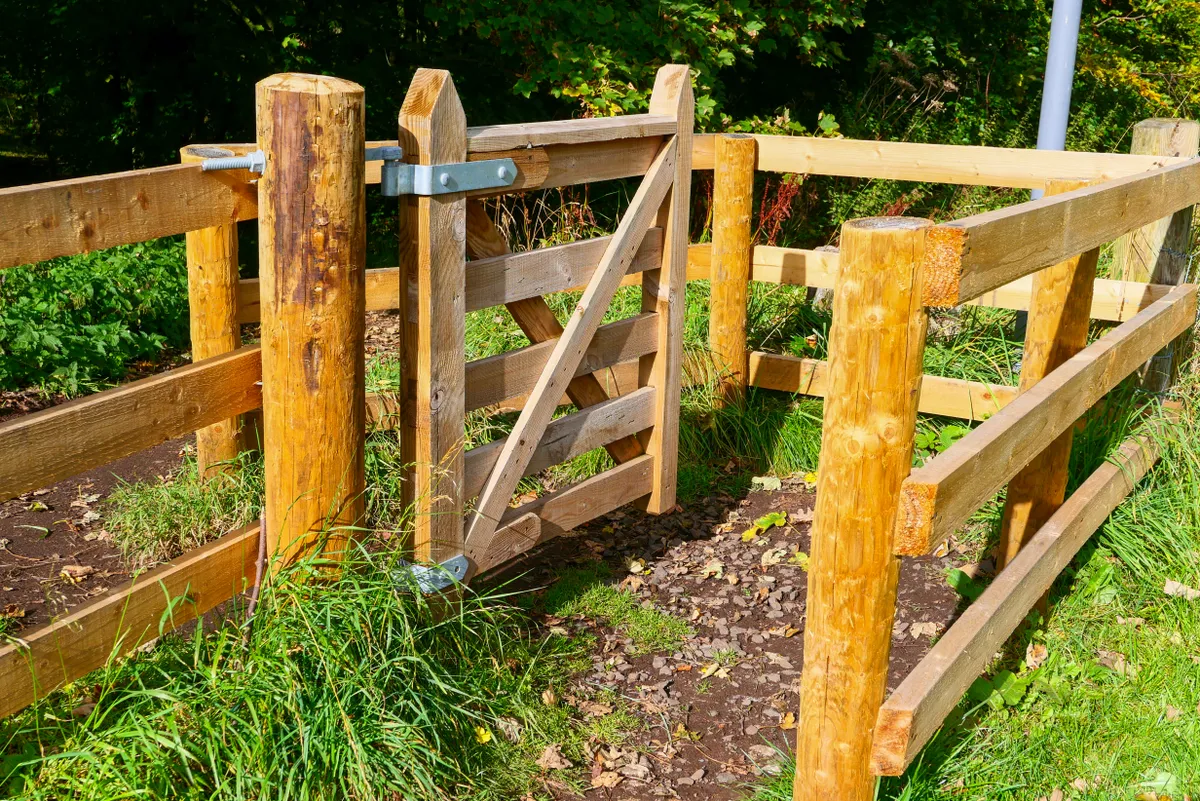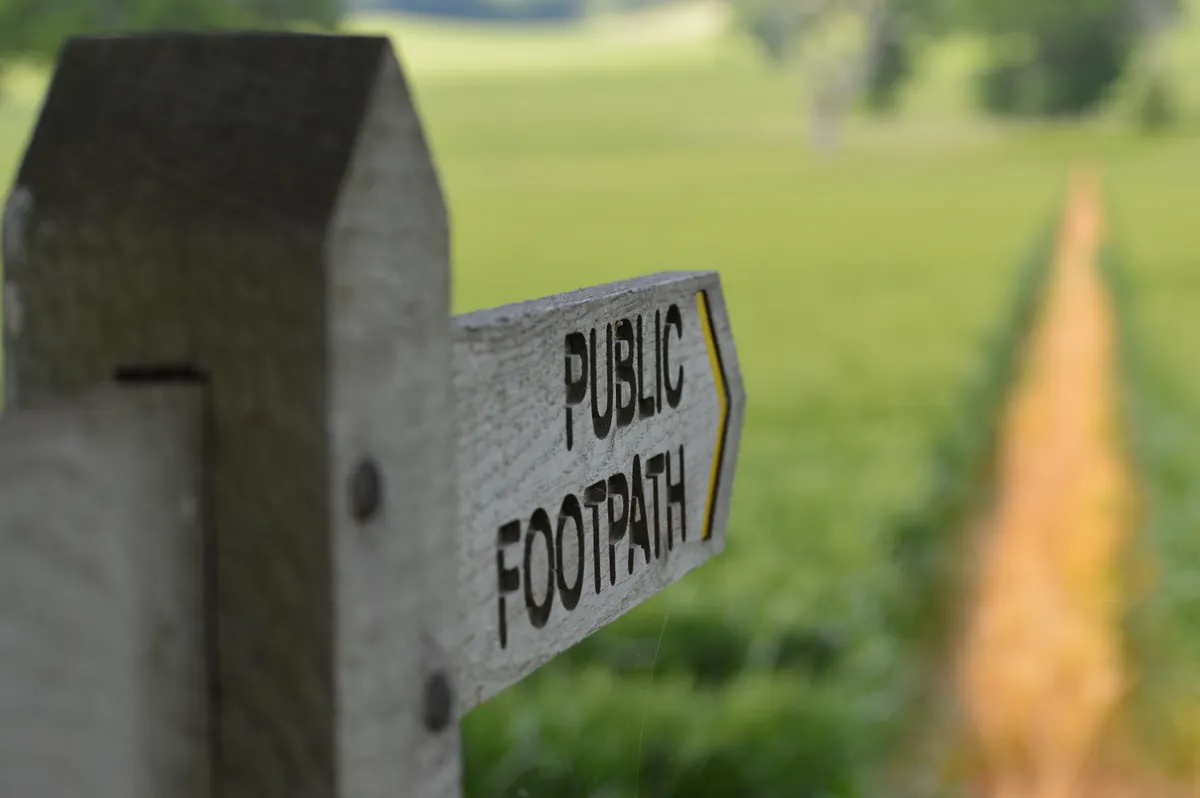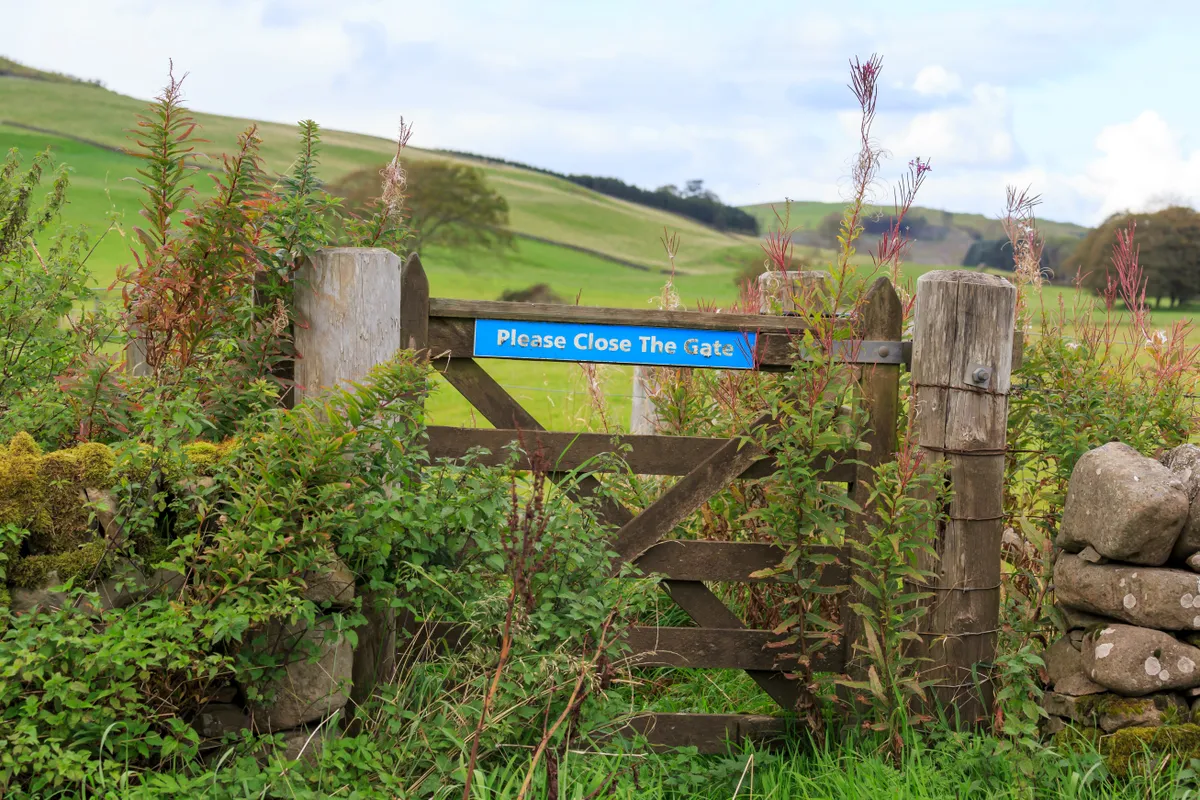Whether it's closing the gates behind you or leaving no trace that you've been there, the Countryside Code is designed to ensure everyone is able to enjoy the natural world in harmony with wildlife, the environment and the people who work within it. It is set out by Natural England.
The Countryside Code’s latest update (8 February 2022) provides recommendations to land managers on how to make land more accessible to the public. The change will allow more people to experience nature safely whilst also supporting land managers and helping to avoid damage to property, livestock and wider anti-social behaviour.
The advice follows the newly refreshed Countryside Code for the public in April 2021, 70 years since the first booklet was published in 1951.
Five-minute guide to the Countryside Code
Our brief guide on the Countryside Code includes how to follow the rules and why they are so important for the natural environment and wildlife.
Getty

The update provides recommendations to land managers on making rights of way more accessible – for example by adding self-closing gates instead of stiles – creating safer environments, and installing clear signage to help the public respect, protect and enjoy the countryside.
It also includes advice on how to report anti-social behaviour, fly-tipping, littering, livestock worrying and other offences correctly, allowing more people to access nature safely while also supporting land managers and helping to avoid damage to property and livestock.

Natural England and Natural Resources Wales worked alongside stakeholders, including the National Farmers Union (NFU), Health and Safety Executive (HSE) and the Country Landowners Association (CLA), to develop the advice.
“With more people than ever before spending time in nature, this refreshed advice for land managers has never been more important in helping to ensure we work together to protect our outdoor spaces,” said Marian Spain, Chief Executive of Natural England.
“I urge all land managers to follow this new advice and continue to help make nature accessible to everyone, so people of all ages and backgrounds can enjoy the invaluable health and wellbeing benefits that nature offers, while giving it the respect it deserves.”

Minister for Rural Affairs Lord Benyon added: “We want to ensure that nature is accessible for all, whilst also supporting people to do the right thing when they are visiting the countryside.
“The new advice in the Countryside Code will help farmers and land managers to help the public enjoy the outdoors in a responsible way. I am grateful to all of those stakeholders who have helped shape this updated guidance.”
Vice Chair of Young Farmers (NFYC) Council Ed Dungait said: “Understanding the Countryside Code and following its advice helps to protect the countryside and all who work within it, inhabit or visit. We are pleased to help promote this code of good practice.”

Director of the Moorland Association Amanda Anderson said: “As moorland land managers we welcome the supportive collaboration from government in this guidance to help increasing numbers of visitors make the most of England’s glorious countryside, while crucially safeguarding it for others and those who live and work on the land. The vast majority of visitors leave no trace, but incidents of antisocial behaviour such as fly-tipping and vandalism have increased recently, causing a disproportionate amount of damage.
“There is even the threat to life from the inappropriate use of BBQs on moorland, which can lead to devastating wildfires. The new guidance recognises these issues and offers constructive advice on how to change unhelpful behaviour and prevent damage to the very thing visitors cherish.”

President of the Country, Land and Business Association Mark Tufnell commented: “The CLA is delighted to have played its part in revamping the Countryside Code and will continue working towards making green public spaces accessible and enjoyable for all.
“The Code now offers landowner-specific advice which will be particularly helpful for our members, equipping them with the tools and knowledge to smoothly manage increased public interest in accessing green spaces.
“Rather than pitting rural communities and visitors against each other, the guidance unites them by focusing on a shared appreciation of our countryside.
“Most importantly, it outlines how both can work together to enhance it. With over 150,000 miles of public rights of way and 2.5 million acres of open access land in Great Britain, there is so much to enjoy responsibly.”
As well as advice for protecting livestock, using machinery in public spaces and the safe storage of chemicals, other key changes include:
- Clearer guidance on keeping rights of way usable, including recommendations for cutting back vegetation and keeping public waterways clear
- Instructions for where visitors can walk freely on open access land or in a coastal margin
- Information about common land and understanding that horse-riding rights are applicable
- The process of reporting anti-social behaviour – criminal damage and threatening behaviour will not be tolerated, and farmers and land managers are advised to contact the police to report any such incidents
- Advice on reporting noise disturbances and fly-tipping to the local authority
- Guidance on managing and protecting livestock, and a reminder of responsibilities when using firearms and fencing
- Advice for creating a safe environment, including the safe storage of bales, logs and the management of trees
- Information on using and storing dangerous substances responsible
For more information visit: The Countryside Code: advice for land managers

